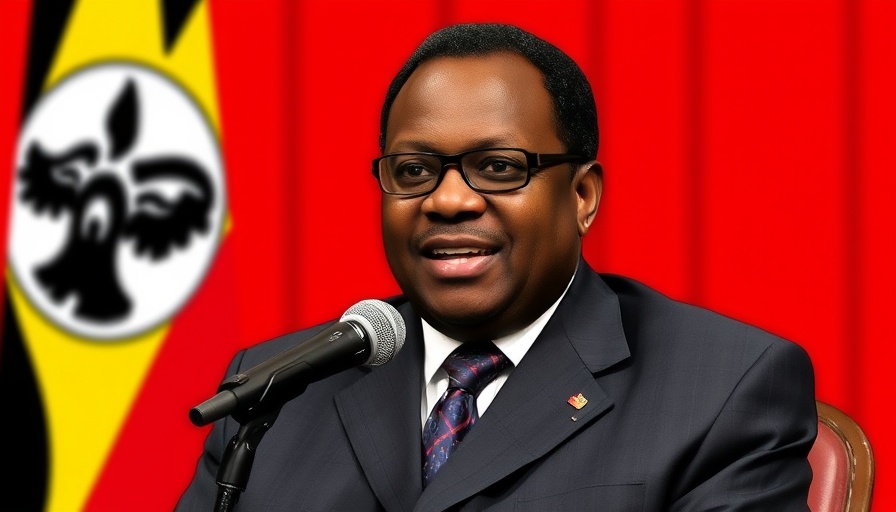
Uganda's Political Landscape: An Overview
As Uganda gears up for the next presidential election, the political fervor is palpable, with contenders solidifying their ambitions. Among these aspirants is the leader of the Democratic Party, Nobert Mao, who recently asserted his intentions to vie for the presidency in the 2026 elections. Mao's persistence in the race reflects the dynamic nature of Uganda's political landscape, where various factions and personalities continually vie for power and influence.
Nobert Mao's Political Journey
Mao is not a newcomer to Uganda’s electoral politics; he has navigated a complex terrain marked by personal sacrifices and political battles. His recent candidacy announcement comes on the heels of his prior role as the Minister of Justice and Constitutional Affairs, showcasing his experience in governance. Mao emphasizes the necessity for a new leadership paradigm that prioritizes transparency and accountability in government processes. Such principles are crucial in a nation where corruption has been a lingering challenge.
The Implications of Mao’s Ambitions for Uganda
The ambitions of political figures like Mao offer significant insight into the current zeitgeist of Uganda's governance and economic strategy. Mao's focus on inclusivity and economic reform aligns with broader calls for enhanced governance in Africa, especially as the continent faces complex global trade scenarios. The political discourse surrounding upcoming elections is interwoven with the themes of Africa’s role in the global economy, particularly regarding its partnerships with the EU and China.
Future Trends in African Governance
The upcoming elections are a bellwether for Uganda's trajectory in African politics. As Mao prepares to take on President Yoweri Museveni, the implications of this electoral battle extend beyond local politics; they signify the potential for shifts in foreign relations and trade policies with major partners. Observers are keenly interested in how these developments will inform Uganda’s position within frameworks like the African Union and BRICS as global tensions evolve.
Conclusion: A Call for Strategic Awareness
Understanding the evolving political landscape in Uganda is essential for stakeholders invested in the African continent's future. As Mao and other leaders articulate their visions, it is crucial for business leaders, policymakers, and academics alike to stay informed and engaged with these developments. Insight into governance trends is indispensable for effective comparison against global practices, particularly as Uganda navigates its international relations and economic strategies moving forward.
 Add Row
Add Row  Add
Add 


 Add Row
Add Row  Add
Add 

Write A Comment